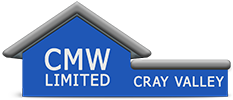
Introduction
Choosing the correct bolts and anchors is crucial when securing fixtures and installations, whether for construction, DIY projects, or industrial applications. Bolts and anchors provide the foundation for structures' stability, safety, and longevity. This guide will explore the top 10 essential bolts and anchors you should consider for secure fixtures and installations.
Expansion Anchors
Expansion anchors are versatile fasteners commonly used in concrete, brick, and masonry applications. Once inserted into the base material, they expand, creating a secure hold. They come in various types, such as wedge anchors, sleeve anchors, and drop-in anchors, making them suitable for different load capacities and installation scenarios.
Lag Bolts
Lag bolts, also known as lag screws, are heavy-duty fasteners designed for wood-to-wood or wood-to-metal connections. They feature coarse threading and a hexagonal head for easy installation using a wrench or socket. Lag bolts provide solid and reliable connections and are commonly used in construction, woodworking, and outdoor projects such as deck building.
Concrete Screws
Concrete screws, also called masonry screws or Tapcons, are specifically designed for fastening into concrete, block, or brick. These screws feature a unique thread design and often come with a corrosion-resistant coating for durability in harsh environments. Concrete screws are ideal for attaching fixtures, brackets, and electrical boxes to masonry surfaces quickly and securely.
Sleeve Anchors
Sleeve anchors are expansion anchors consisting of a threaded stud, a sleeve, and a nut. They are suitable for medium—to heavy-duty concrete, brick, or block applications. Sleeve anchors provide excellent pull-out resistance and are commonly used for anchoring structural elements, machinery, and equipment to solid surfaces.
Toggle Bolts
Toggle bolts, or butterfly anchors, are versatile fasteners for securing heavy items to hollow walls, ceilings, or doors. They consist of a bolt with spring-loaded wings that expand once inserted into the wall cavity. Toggle bolts are ideal for mounting shelves, light fixtures, and mirrors in drywall or plasterboard, providing reliable support for heavy loads.
Wedge Anchors
Wedge anchors are heavy-duty expansion anchors designed for high-strength concrete applications. They feature a threaded stud with a tapered end and a separate expansion clip. When tightened, the wedge anchor expands against the concrete, creating a secure connection. Wedge anchors are commonly used in structural steel, handrails, and machinery installations where reliability and strength are paramount.
Drop-In Anchors
Drop-in anchors are internally threaded expansion anchors used in concrete, precast panels, and other solid materials. They consist of a hollow cylindrical anchor body with a threaded internal coil. During installation, the anchor is inserted into a pre-drilled hole, and a setting tool expands it, providing a secure attachment point for bolts or threaded rods.
Anchor Bolts
Anchor bolts are threaded fasteners that secure structural elements to concrete foundations or masonry. They come in various shapes and configurations, including L, J, and U-shaped designs. Anchor bolts are commonly embedded into concrete during construction to provide anchorage for columns, beams, and equipment, ensuring stability and structural integrity.
Plastic Anchors
Plastic anchors, also known as wall plugs, are lightweight fasteners that secure light-duty fixtures to drywall, plaster, or other hollow materials. They are typically made from nylon or plastic and expand once inserted into the wall cavity. Plastic anchors are suitable for applications such as hanging pictures, installing curtain rods, and mounting electrical outlets where a robust and stable connection is needed.
Stud Anchors
Stud anchors, also called stud bolts or threaded rods, are long, threaded fasteners that anchor structural elements, equipment, and machinery to concrete or steel. They are inserted into pre-drilled holes and secured with nuts and washers on the exposed end. Stud anchors provide high tensile strength and are commonly used in construction, bridge building, and industrial installations.
FAQs
What factors should I consider when choosing bolts and anchors for my project?
Consider factors such as the type of base material (concrete, wood, drywall), the weight and load capacity of the fixture, environmental conditions (moisture, temperature), and the method of installation (drilling, hammering, screwing).
Are there different types of anchors for other materials?
Specialised anchors are designed for specific base materials such as concrete, brick, wood, and drywall. To ensure a secure hold, it's essential to choose anchors compatible with the material you're working with.
How do I know which size of bolt or anchor to use for my project?
Refer to the manufacturer's guidelines or consult with a hardware expert to determine the appropriate size and length of bolt or anchor based on the fixture's weight and size and the thickness of the base material.
Can I use the same bolts and anchors for indoor and outdoor projects?
While some bolts and anchors are suitable for indoor and outdoor use, others may be specifically designed for outdoor applications to withstand exposure to moisture, temperature fluctuations, and corrosion. Always check the specifications and choose accordingly.
What is the difference between a bolt and an anchor?
A bolt is a threaded fastener that joins two or more components together, typically passing through pre-drilled holes and secured with nuts and washers. On the other hand, an anchor is a fastener used to attach objects to a base material (such as concrete, wood, or drywall) by expanding or gripping within the material itself.
Conclusion
Choosing the correct bolts and anchors is essential for ensuring the stability, safety, and longevity of fixtures and installations. Whether you're working with concrete, wood, or hollow walls, selecting the appropriate fasteners for the job is crucial. Considering load capacity, base material, and installation method, you can confidently secure your projects with this guide's top 10 essential bolts and anchors.
If you want to take a closer look at our range of Bolts & Anchors, click here. If you want to contact or find out more about this blog posts author, Dave click here.
